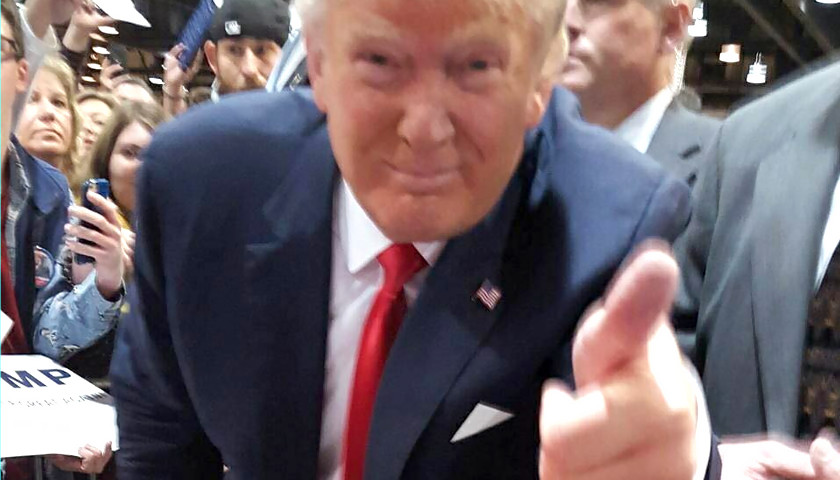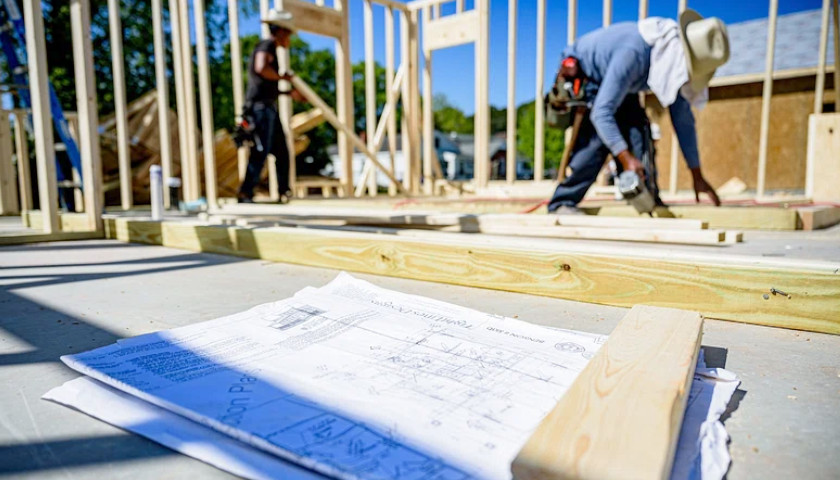by Jeffrey Rendell
The first Republican primary debate of the 2024 presidential nominating cycle is set for one month from yesterday – on August 23, 2023. On that day, presumably, all major candidates for the GOP presidential nomination will assemble in Wisconsin to present their campaign pitches to the American public.
There isn’t an incumbent president in this year’s extravaganza, so it’s only natural that several hopefuls have expressed interest in a campaign. Deference is usually afforded a party president during his reelection run (as Democrats have announced there will be no debates on their side with senile Joe Biden currently in office), yet this year is different.
Former president Donald Trump is waging a comeback bid for a third term, having “lost” (or been denied an opportunity to prove funny business) in 2020. Trump has a huge lead in pre-debate polls. Debate organizers are planning for him to be there, but Trump hasn’t shared whether he even plans to take part.
When the subject was brought up recently during an interview, Trump was elusive as to his intentions. In an article titled “‘When you have a big lead, you don’t do it’: Trump still not sold on GOP primary debate”, Kelly Garrity reported at Politico last week:
“[Trump] ‘Ronald Reagan didn’t do it and a lot of other people didn’t do it. When you have a big lead, you don’t do it,’ Trump said during an interview…
“‘We have a lead of 50 and 60 points in some cases. … You’re leading people by 50 and 60 points, you say why would you be doing a debate? It’s actually not fair. Why would you let somebody that’s at zero or one or two or three be popping you with questions?’
“The former president also shrugged off the idea that bypassing the debate could allow for Florida Gov. Ron DeSantis — who has been consistently polling second behind Trump — to gain on him. ‘Do you see any risk that if you don’t show up, Ron DeSantis has a good night and it cuts into your lead?’ host Maria Bartiromo asked. ‘Or somebody else has a good night and cuts into his lead, because that’s what’s happening. He’s going down and a couple of them are going up,’ Trump replied.”
Cable news hosts such as Bartiromo feel obligated to ask Trump about the debate if they’re fortunate enough to score an interview with the likely Republican presidential nomination winner, but they almost certainly know the answer before they even pose the question. Trump treats everything associated with his campaign strategy as a type of negotiation, and he isn’t about to tip his hand too early.
The debate will go on in four-plus weeks’ time and Trump will be there or he won’t. In the meantime, every time he’s interviewed, the host will ask the same thing – and he’ll provide the same or similar response. It’s like a sporting event where you won’t know the outcome until the final buzzer sounds. In the doing, there are a few scenarios for Trump’s deliberations:
Scenario number one is Trump deciding to skip the debate entirely. Some who’ve studied Trump suggest this is the most likely case since Trump never does anything by the so-called book and he more than likely means what he says when he explains that frontrunners don’t open the door to lesser competitors by allowing them a naked shot at the incumbent/obvious leader.
Lots of liberals claim Trump’s always lying – about everything – and often his statements of belief are cloaked in degrees of shade or exaggeration, but it seems clear in this instance that he’s truly up in the air about whether to come to Milwaukee and participate in a standard political “debate” where almost all of his opponents will be pecking at his heels for their allotted minutes – or else ignoring him completely by avoiding direct attacks so he won’t be granted a rebuttal.
It could be like, “Joe Biden inherited a culture and an economy that was subsequently made even worse by inept Democrat leadership. The country hasn’t been unified since September 11, 2001, and the leadership styles of past American chief executives haven’t done what it takes to bring people together. I represent a change from the past. Vote for me.”
If Trump opts not to show up, it won’t look good for him, and he merely opens the door for his opponents to attack and criticize him on his personality, January 6, COVID policy, hairstyle, golf game and everything else that comes to mind. Since the leader won’t be there, the moderator won’t be granting extra time for him to reply to direct confrontations. It’ll almost be like a boxing match where the champion’s arms are tied behind his back, exposing his midsection to body blow after body blow. Will it hurt?
Scenario number two has Trump announcing well beforehand that he’ll participate in the debate and not elaborate on his decision to do so. Perhaps he’ll do a Truth Social post where he types “See you in Milwaukee” or simply scrolls out, “I’ll be there.”
What does Trump have to gain from showing up? It’s a valid question. He isn’t likely to convince many – or any – of the anyone-but-Trump voters to back him. In essence, with such huge polling leads to begin with, he doesn’t need to. Or, he could take an “I want to win by more” type philosophy and devote all his considerable Trump-ian energy into policy, policy, policy and hope to assuage his doubters. He’s going to need them later on, so he’d better initiate the healing process now, shouldn’t he?
Or, he could simply show up and fill his place on stage and fulfill more of an “It’s a team effort” role and do whatever is necessary to complete the process (not just the debate) and take more of an “Act like you’ve been here before” attitude that football coaches preach to discourage hot dog players from acting too out-of-line when scoring touchdowns.
Scenario number three is Trump remaining aloof towards his plans, not saying whether he’ll attend the event and then send the establishment media into a tizzy by showing up a few seconds before the program begins – or even a couple minutes late. What would the organizers do, tell him that he missed the starting gate and that he can’t run with the others? Or penalize him for breaking the rules?
Because of Trump’s polling position and rock hard backing from his slice of the Republican electorate, Trump can demand special considerations. By springing a surprise on Ronna McDaniel and the GOP poohbahs, he can assert his ownership of the party and get the ratings-hungry media to grovel at his feet. Perhaps he’s even earned such a privilege. They need him a heck of a lot more than he needs them.
A final scenario would be for Trump to do as he did in early 2016, skip the debate entirely and organize his own counter-rally in a nearby location and put on his own show. I would think this would be the least likely alternative because it gives the impression that he didn’t want to face his challengers, also that he is hesitant to answer any difficult questions.
As I recall, most commentators regarded it as a mistake when Trump held out from one of the programs in 2016 (on January 28, before the Iowa caucuses). It didn’t have much of an effect on the party race’s ultimate outcome, though Trump did end up narrowly losing to Ted Cruz in Iowa a few days later. The little bit of spoiled-brat ill will that he demonstrated might just have made the difference – at least temporarily – but Trump recovered and the incident was mostly forgotten after he participated as usual in the next forum.
The conclusion? Taking part in a standard political primary debate could be worth a couple points in either direction in certain locations (the early states) and if the event is held close enough to the actual vote so as to be fresh in voters’ minds, it matters. The mystery for next month’s debate is whether voters will be turned off by a Trump absence so much so that they’ll begin rejecting him in a slow drip of support.
Or, there could be no effect at all, either positive or negative. As long as Trump continues to be under assault by the Biden Justice Department, it’s not likely that people who support him now would be peeled away by a “small” thing like a televised candidate forum. Who knows, perhaps the die-hard Trump backers wouldn’t even tune-in to the program, figuring their vote was set in stone and the rest was background noise in the big scheme of things.
Meanwhile, Trump’s rivals are desperately hoping he joins the fray, figuring it’s one of a few potential direct shots they have at the frontrunner – or merely to use the time to argue their case for how cooperative and deferential they can be if Trump were to choose them for vice president.
Voters aren’t the only ones who want Trump to make an appearance in Milwaukee.
A lot can and will happen in the next month in the Republican presidential race, and Donald Trump will make headlines whether he opts into the party’s first debate or not. Trump enjoys the luxury of being able to set his own agenda, and there are advantages and disadvantages to debating the others. How much longer will the frontrunner keep us in suspense?
– – –
Jeffrey A. Rendall is a senior contributor to ConservativeHQ.





